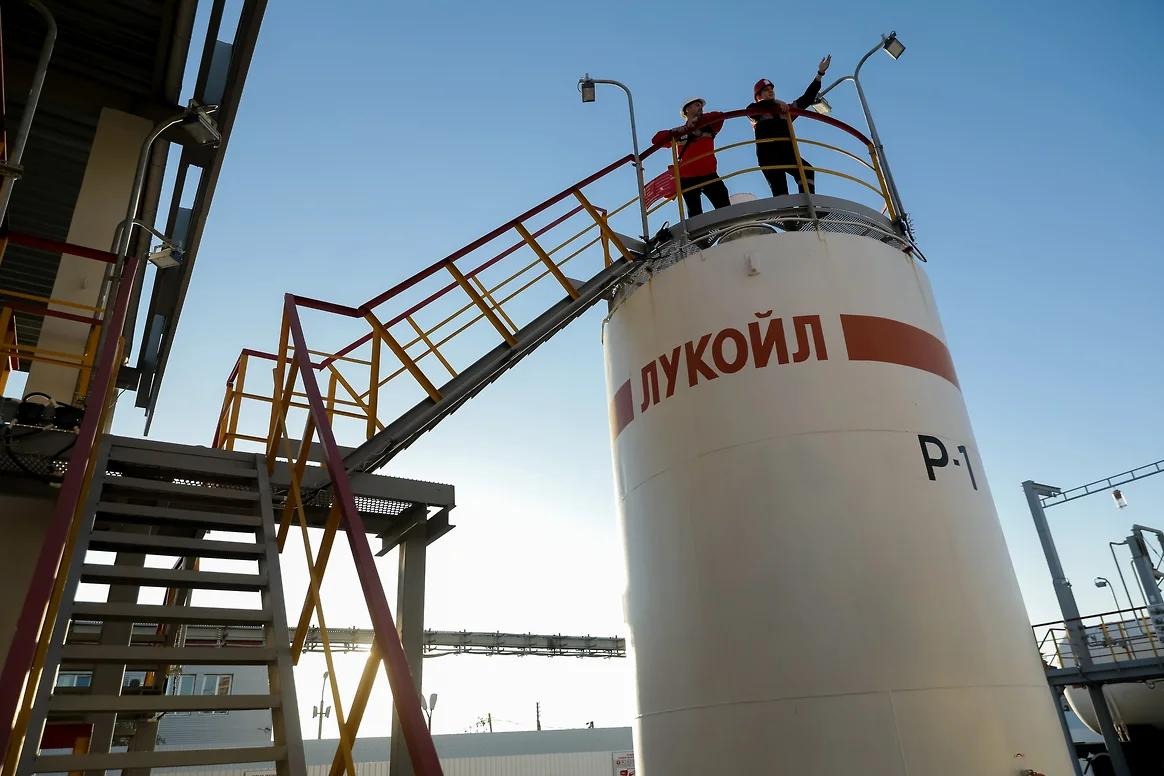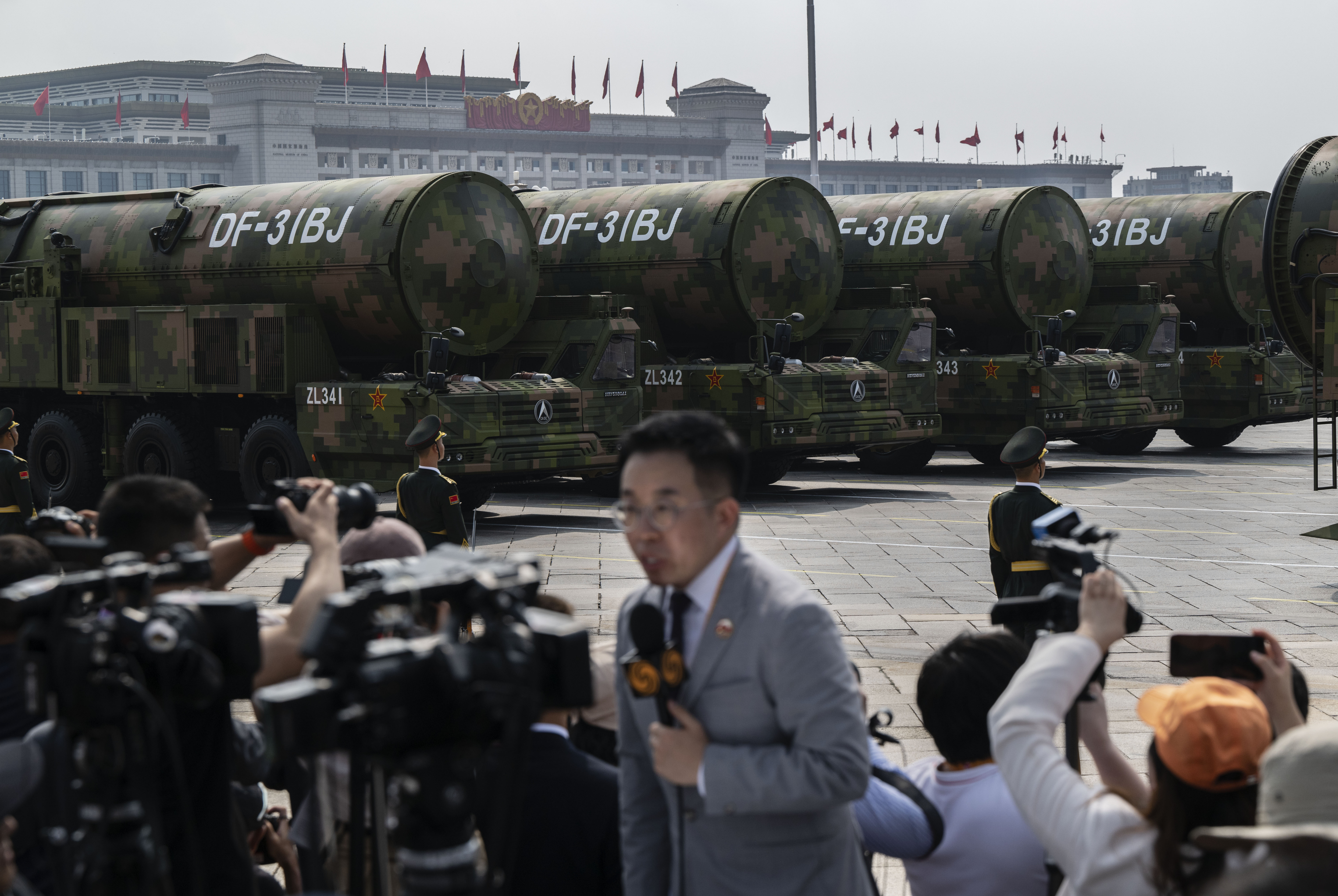Belarus: Marking the Anniversary of Tragic Events
Belarus: Marking the Anniversary of Tragic Events
On December 23, for four hours President Alyaksandr Lukashenka responded to questions from domestic and foreign journalists. He expressed certainty that the financial crisis, caused by price hikes on oil and gas, rash imports of used cars, and by the mistakes in fiscal policy, will be overcome in 2012. Addressing the reproach that the selling of Beltransgaz, the Belarusian natural gas pipeline network, to Russia imperils Belarus’ sovereignty, Lukashenka opined that those who think that way would have been content if the same network had been sold to Western buyers. He added that the transaction in question was accompanied by a drastic decline in the price of Russia’s natural gas equivalent to saving at least $2 billion per annum. Lukashenka declared that the still jailed 2010 presidential hopefuls, Oleg Sannikov and Nikolai Statkevich, would be released prior to the expiration of their prison terms only if they file a request for clemency (www.sb.by/post/124781/).
Several Minsk-based commentators weighed in on the first anniversary of the riot police crackdown on the post-election protest rally on December 19, 2010. According to Alexander Starikevich, there were three reasons behind the election-day violence – Lukashenka’s thriving on confrontations, a deliberate injection of fear into the society in anticipation of the economic downturn, and a political miscalculation. Since 2008 to 2010, the West tended to overlook Lukashenka’s transgressions, consequently he came to believe in his invincibility (https://www.zautra.by/art.php?sn_nid=9793&sn_cat=7). Participating in a talk show on the Belarusian Service of Radio Liberty, devoted to the events of December 19, 2010, the same author admitted that much is still unknown about the actual drivers of those events. But all three participants in the show (Alexander Starikevich, Alexei Pikulik and Nikolai Khalezin) agreed that the doors and windows of the government building were beaten by the provocateurs (https://www.svaboda.org/content/article/24428450.html).
Vadim Gigin, who represents the regime’s views, believes that the December 19 assault on the government building in Minsk was initiated in Western capitals. According to Gigin, the tenacious rumor that the provocateurs on government payroll broke the doors and windows of the aforementioned building was convincingly disproved during the trials that took place between March and May 2011; also, the number of people in Independence Square (reportedly) did not exceed 15,000 overall, and 8,000 at the time of the crackdown, which was swift and relatively gentle, considering that few people were wounded and nobody was killed. Gigin admits that in its own propaganda war, the regime also used some questionable information. For example, it was never proven that the weapons shown to the general public after the dispersal of the post-election rally indeed belonged to the demonstrators (https://www.belta.by/ru/blogs?auth_ID=16&art_ID=118).
Two opposition-minded analysts expressed views highly atypical for the wider confrontation-ridden Belarusian political scene. Alexei Pikulik, the head of the Belarusian Institute of Strategic Studies, opined that both the regime and the opposition share a besieged fortress mentality and both depend on external financial donors. Whereas the regime exploits the “resource rents” flowing from Russia, the opposition depends on Western grants, and neither side is accountable to ordinary Belarusians. If the opposition really wants to gain power, it should follow the electoral majority, shift to the political center, and stop sustaining the status quo, however indirectly. It should also start looking for domestic financial resources. According to Pikulik, the prospect of Belarus’ democratization hinges on two factors – a deep economic crisis and/or sudden democratization in Russia (https://naviny.by/rubrics/opinion/2011/12/22/ic_articles_410_176253/).
Yury Chausov, who is a member of the ruling body of the Belarusian Popular Front (Belarus’ oldest opposition party) claims that cultivating the image of a protest gathering in a large central square as a magic wand able to free Belarus from its authoritarian regime has been a grave mistake all along. According to Chausov, the “fetish of the square” is rooted in the opposition’s delusion that the 2006 post-election protests achieved a moral victory. Parroting the December 2004 protests in Kyiv was not a good idea to begin with, as the only reason why those protests succeeded was that the political regime in Ukraine was split – something that is entirely absent in Minsk. Much like Pikulik, Chausov suggests that the opposition should be trying its best to enter into a dialogue with the regime (https://zapraudu.info/pora-uxodit-s-ploshhadi/).
Chausov’s and Pikulik’s articles came on the heels of the acrimonious disputes within the opposition culminating in the publication by Nikolai Khalezin of a leaked copy of the program document convolutedly titled: “Conceptual Underpinnings of the Project: Organization of the Parliamentary Party ‘New Political Force’” (https://kilgor-trautt.livejournal.com/896357.html#comments). The project is attributed to Piotr Martsev, a businessman and the editor of a former opposition daily (currently an online publication www.bdg.by), Alexei Pikulik, and Andrei Dmitriev, the manager of Uladzimer Neklyaev’s presidential campaign. The political party in question was supposed to engage in a dialogue with the Lukashenka regime, and the overall cost of the project is referred to as $500,000. Two questions were bitterly debated by the members of the opposition – who leaked the document and when it was produced.
A response to the latter question determines the scale of putative betrayal of the opposition’s cause by the document’s authors. If the project was produced before December 19, 2010, and then altered by the KGB and leaked in order to cause fratricidal disputes in the opposition (as per Martsev) this is just a regrettable attempt at collaboration with a dictatorial regime. If, however, the project was produced after the crackdown of December 19, then the project constitutes treason on the part of its authors. According to Martsev, “over the entire Belarusian opposition a flag flutters with three letters – KGB. Everybody is looking for enemies and everybody is a potential traitor and an associate of the KGB. All of this paranoia can only be stopped if we all stand up and say in unison: yes, we are all KGB agents and it was just the KGB that was attempting a coup” [on December 19] (https://news.date.bs/politics_260006.html). Soul-searching in the Belarusian opposition continues.


